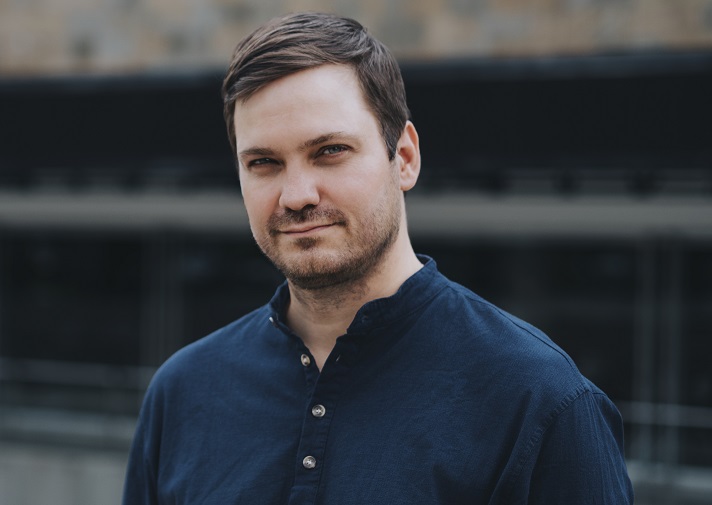
Can AI revolutionize peacekeeping and prevent conflicts before they begin?
01/23/2025AI is widely regarded for enhancing health care, education or entertainment, its potential contributions to the field of diplomacy remains less explored. We spoke to Weizenbaum Fellow Martin Wählisch about how AI can be used for peacekeeping and conflict mediation.
Martin Wählisch is an expert in peace and dialogue processes in international conflict regions such as Lebanon, Yemen, Afghanistan, and Kosovo. He is currently an Associate Professor at the University of Birmingham (UK), where he develops new methods and technologies for mediation and conflict prevention. Previously, he worked at the United Nations in New York, where he led the Innovation Team in the Department of Political Affairs and Peacebuilding, focusing on strategies for conflict resolution.
How do you see the potential of Artificial Intelligence (AI) in peacekeeping and conflict mediation?
AI has immense potential to transform diplomacy, peace operations, and conflict mediation. Perhaps the most exciting aspect is how AI can enhance data-driven decision-making by processing vast amounts of information from sources such as social media, local news, or satellite imagery. This capability allows us as political analysts to identify early warning signs of conflict and shifts in public sentiment. AI can also enable the simulation of political trajectories, including negotiation or intervention outcomes, offering insights into the likely consequences of conflict scenarios.
But above all, I’m particularly passionate about the role of AI in facilitating digital dialogues. New advanced AI-tools with multilingual support and simple language interfaces can make peace processes more inclusive, amplifying voices that might otherwise be excluded from critical conversations.
However, we must acknowledge the limitations of AI. Cultural biases embedded in algorithms and the widening digital divide remain significant challenges. It is important to ensure that new technologies are equitable, transparent, and designed to serve diverse communities effectively. Balancing these opportunities with a commitment to ethical development and implementation will determine the true impact of AI in this field.
How can AI help predict escalations concretely?
AI can help recognize patterns that indicate social frictions which can point to potential escalations. The approach isn’t entirely new - machine learning was even used during the Cold War to predict the arms race between the East and the West - what’s novel today is the ability to capture the complex interplay of political, social, and economic dimensions with unprecedented speed and precision, thanks to advancements in computational power and technology.
For instance, machine learning models can analyze historical and real-time data at scale to identify triggers or trends, such as spikes in inflammatory rhetoric on social media or unusual troop movements detected via satellite imagery. AI can also support sentiment analysis, providing insights into whether public attitudes in a region are deteriorating. By leveraging these capabilities, policymakers and peacekeepers can shift from reactive responses to proactive strategies, addressing potential conflicts before they escalate.
To what extent can AI support dialogue processes between conflicting parties?
What I find most intriguing is that Generative AI and Large Language Models are now capable of emulating human-like conversations - a concept first explored by Joseph Weizenbaum with his chatbot ELIZA in the 1960s. This technology offers the potential for a personal companion to help us organize our thoughts, clarify our worldviews, and navigate complex political issues. Such AI-enabled self-deliberation is incredibly powerful. Moreover, these same methods can be used to identify common ground and overlapping interests with others, fostering communal consensus. Together, these advancements present tremendous opportunities to overcome conflict and build more stable democracies.
Which innovative technologies or projects do you currently see as particularly promising for conflict prevention and peacekeeping?
An exciting area of innovation is geospatial AI, which integrates satellite imagery with machine learning to monitor and analyze critical hotspots. This technology has transformative applications, such as tracking the movements of displaced populations, detecting illegal resource extraction, and providing real-time insights into conflict zones.
Equally promising is VR designed for empathy-building or virtual visits to conflict zones. By immersing decision-makers in the lived realities of conflict zones, these tools foster deeper understanding and compassion, helping bridge the gap between policy and on-the-ground experiences.
What’s particularly compelling is the combination of emerging technologies—for example, integrating VR with AI to create interactive, data-driven simulations. Such simulations hold immense potential for diverse applications, including advanced training programs for humanitarian responders and the preparation of decision-makers for high-stakes peace negotiations.
How do you view the collaboration between technologists, peace researchers, and political actors in developing AI solutions for peace?
What I've learned through my work oscillating between the scholarly and practitioner worlds - and between the fields of social science and computer science - is that collaboration is essential, but it is far from easy.
It is challenging to be an expert in both the social and technical domains, and it is equally difficult for experts in one field to maintain an open mind toward the other. Technologists often begin coding before fully understanding the problem, while peace researchers or political actors frequently lack the imagination to see what is technically possible.
Institutions like the Weizenbaum Institute are vital and remain rare venues where these diverse disciplines and perspectives can come together meaningfully.
I call my work 'computational global affairs'. It’s about finding practical, computational ways to tackle some of the biggest challenges of our time - things like armed conflict, inequality, and the climate crisis. I firmly believe that fostering greater collaboration across disciplines is key to tackling these complex and wicked global issues.
Thank you for the interview!
The interview was conducted by Katharina Stefes